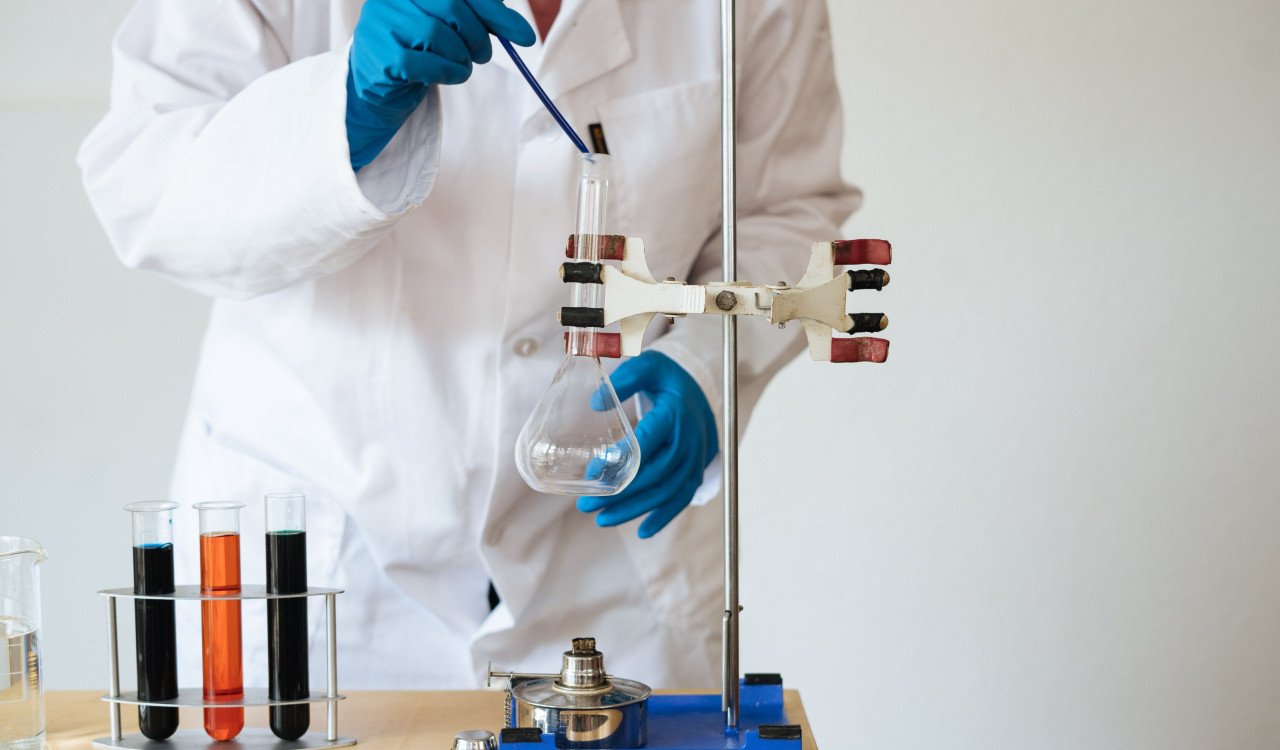Plant design principles in chemical engineering involve creating efficient and safe processes for manufacturing chemicals. Key aspects include equipment selection, process optimization, safety protocols, and environmental considerations to ensure reliable and sustainable operations.
Chemical
Chemicals are substances with distinct molecular compositions, encompassing elements or compounds. They undergo chemical reactions and play vital roles in diverse industries, including pharmaceuticals, agriculture, and manufacturing. Chemicals can be organic, inorganic, polymers, or specialty substances, contributing to products ranging from medicines to plastics.
Engineering
Engineering is the application of scientific principles to design, build, and maintain structures, devices, systems, and processes. It involves problem-solving and creativity to address real-world challenges, aiming to improve efficiency, safety, and functionality. Engineers use math, science, and technology to innovate and create solutions across various fields.
Plant design
Plant design chemical plants or refineries. It involves specifying equipment, layout, and processes to achieve safe, efficient, and cost-effective production. Engineers use principles of chemical engineering and project management to ensure successful implementation.
Chemical engineering
Chemical engineering applies principles of chemistry, physics, and mathematics to design, optimize, and operate processes that transform raw materials into valuable products. It spans various industries, from pharmaceuticals and energy to materials and environmental science. Chemical engineers innovate to improve efficiency, safety, and sustainability in production processes.
Principles of Chemical Engineering encompass fundamental concepts and practices applied to chemical processes and industries. Key principles include:
Mass and energy balances are fundamental principles in chemical engineering. They involve accounting for the inflow and outflow of mass and energy in processes to ensure conservation and efficiency.
Thermodynamics a core principle in chemical engineering, studies energy transformations in systems. It applies laws governing heat, work, and energy flow to analyse and optimize processes for efficiency and sustainability.
Fluid Dynamics in chemical engineering studies the behaviour of liquids and gases. It involves the analysis of fluid flow in pipes and equipment, essential for designing efficient processes and systems.
Heat Transfer is a key concept in chemical engineering, focusing on the movement of heat within and between systems. It is crucial for optimizing temperature control and efficiency in various processes.
Mass Transfer in chemical engineering deals with the movement of substances within a system. It plays a critical role in separation processes, such as distillation and extraction, ensuring efficient purification.
Chemical Kinetics explores the rates and mechanisms of chemical reactions. In chemical engineering, it guides the understanding and control of reaction pathways, essential for optimizing processes and product quality.
Process Control in chemical engineering involves using feedback systems to monitor and adjust variables like temperature and pressure, ensuring optimal operation. It employs sensors, controllers, and actuators to maintain desired conditions, enhancing efficiency and safety in industrial processes, from chemical manufacturing to power generation.
Unit Operations in chemical engineering refer to distinct steps or processes involved in transforming raw materials into desired products. Examples include distillation, filtration, and crystallization. Understanding and optimizing unit operations are fundamental for designing efficient and effective chemical processes across various industries, from petrochemicals to pharmaceuticals.
Reaction Engineering involves designing and optimizing chemical reactors for desired outcomes in chemical processes. It considers factors like reaction kinetics, heat transfer, and mass transfer. This field is crucial in industries such as petrochemicals and pharmaceuticals, ensuring efficient and controlled conversion of raw materials into valuable products through chemical reactions.
Separation Processes in chemical engineering involve techniques to isolate and purify components from mixtures. Common methods include distillation, extraction, and filtration. These processes are vital in various industries, from refining petroleum to producing pharmaceuticals, ensuring the efficient separation of different substances for quality and compliance with product specifications.
Materials Science in chemical engineering explores the properties, structure, and behaviour of materials used in processes. It involves the selection and design of materials to meet specific requirements in industries such as manufacturing and construction, ensuring the optimal performance and reliability of materials used in various applications
Environmental Engineering in chemical engineering addresses challenges related to environmental protection and sustainability. It involves designing processes and systems to minimize pollution, manage waste, and promote resource conservation. By integrating engineering principles, it contributes to creating environmentally friendly solutions and meeting regulatory standards in industrial and municipal applications
Bioprocess Engineering in chemical engineering applies principles to biological systems, often in the production of pharmaceuticals, biofuels, and food. It involves designing and optimizing processes that use living organisms or their derivatives. This interdisciplinary field integrates biology and engineering to ensure efficient, safe, and sustainable production processes with a focus on biotechnology applications.
Safety in Design ensures the proactive identification and mitigation of potential hazards during the planning and design of processes, emphasizing measures to protect personnel, the environment, and assets
Economic Analysis in chemical engineering involves evaluating the financial aspects of projects and processes. It considers costs, benefits, and risks to make informed decisions, ensuring economic viability. This discipline aids in optimizing resource allocation, budgeting, and financial planning to achieve cost-effective and sustainable outcomes.
Optimization Strategies in chemical engineering involve methods to enhance the efficiency and sustainability of processes. By systematically adjusting variables, employing mathematical models, and utilizing technology, engineers strive to maximize output, minimize resource consumption, and reduce environmental impact. This approach ensures the development and operation of processes that are both effective and economically viable.
Process Intensification in chemical engineering focuses on enhancing the efficiency and sustainability of processes. It involves innovative techniques to optimize reactions, improve heat and mass transfer, and increase productivity. By reducing equipment size and energy consumption, process intensification aims to create more compact, cost-effective, and environmentally friendly manufacturing processes.
Conclusion
In conclusion, adhering to plant design principles in chemical engineering is paramount for the success of manufacturing processes. The meticulous selection of equipment, optimization of processes, and integration of safety measures not only enhance efficiency but also contribute to the overall sustainability of operations. By prioritizing these principles, chemical engineers can create plants that are not only economically viable but also environmentally responsible, ensuring the long-term success and safety of the industry.
